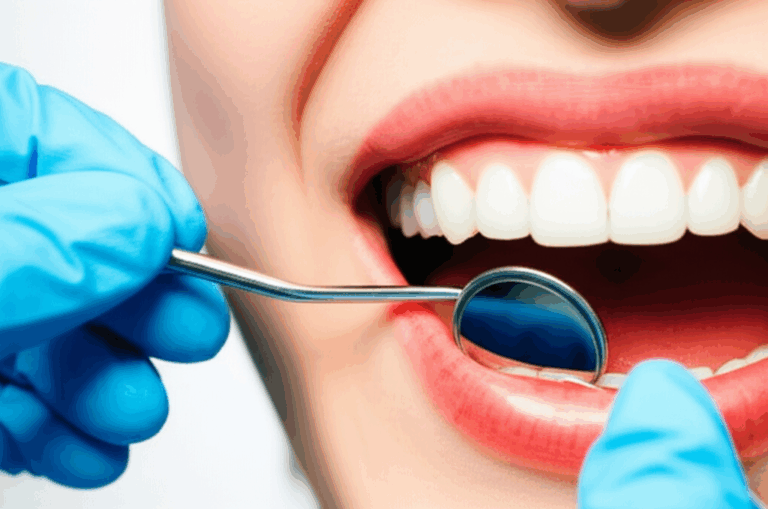
How Much Do Dental Implants Cost on the NHS? Your Simple UK Guide
Want to know about dental implants and if you can get them on the NHS in the UK? How much do you pay at a private dentist, and what’s the real difference? You’re in the right place! In this guide, I’ll explain the facts, the NHS rules, prices, and all your choices—so you can feel happy with your smile again.
Table of Contents
What Are Dental Implants and Do You Need Them?
Dental implants are strong, tiny metal posts—normally made from titanium—that dentists put in your jawbone to fill in for a missing tooth. They grow together with your bone (osseointegration) and act just like real tooth roots. A new crown (a tooth-shaped cap) goes on top, so your smile looks whole again.
You might want one if you’re missing one, a few, or all your teeth—because of injury, disease, or other reasons. Some people use false teeth (dentures) or a dental bridge instead, but implants are usually the most steady and natural-feeling fix. If you can’t chew certain foods or feel shy about smiling, you get the problem.
Example: Imagine trying to bite into an apple with loose dentures. Not easy, right? With dental implants, you can bite just like with real teeth.
Why Are Dental Implants So Expensive?
Dental implants do cost a lot. Why? A few reasons:
- Special Metals: Most are made from top-level titanium or Zirconia.
- Skilled Work & Tools: Placing them takes a trained oral surgeon or implant dentist and fancy stuff like 3D scans.
- More Than One Step: You need a check-up, X-rays, sometimes a bone graft, then surgery, healing, and check-ups.
- Lasts a Long Time: If you look after them, they can last decades, maybe your whole life.
Here’s a simple table:
| Step | What’s Involved | Typical Cost (Private, UK) |
|---|---|---|
| Consultation & Scans | X-rays, 3D or CT scans | £50-£250+ |
| Implant Surgery | Metal post into jaw | £2,500-£3,500 per tooth |
| Abutment & Crown | Joiner plus “tooth” | Included above |
| Bone Grafting (if needed) | Add bone to help implant | £500-£2,000 extra |
| Aftercare & Maintenance | Check-ups, cleanings | £50-£100 per visit |
Source: British Dental Association (BDA) [2024].
Can You Get Dental Implants on the NHS?
The big question: Can you get dental implants free or cheap on the NHS? The short answer: only in rare cases.
For most people—if you lost a tooth from decay or you just want teeth to look better—the NHS won’t pay for implants. Implants aren’t shown as normal NHS treatment for regular missing teeth. So, if you’re hoping for a new smile at a small cost, it’s unlikely.
But don’t lose hope yet. If you’re in a special group (more on that next), it’s possible.
NHS Dental Implant Eligibility: Who Can Qualify?
Let’s look at the actual rules.
The Main Rule
The NHS only gives implants for really serious medical needs—not for normal, age-related, or just for looks. You must show your need. It’s not just about wanting a nice smile.
Who Might Get Them?
- Accident Victims: Lost teeth from a crash, bad fall, or something like that.
- Oral Cancer Patients: Teeth taken out as part of cancer treatment.
- Born With Missing Teeth: Conditions like hypodontia or anodontia.
- Very Hard Cases: Only if bridges or dentures don’t work for you.
If you think you might fit, talk with your NHS dentist for advice.
Who Usually Can’t Get Them?
If you’ve lost teeth because of normal decay, gum problems, or just don’t want dentures, you pretty much can’t get NHS implants. The NHS uses its resources for people with the most need.
How Much Do Implants Cost Privately in the UK?
If you aren’t one of the rare people who get NHS help, how much does it cost privately?
| Treatment | Typical Private Cost (UK, 2024) |
|---|---|
| Single Dental Implant | £2,500 – £3,500 |
| Full Arch/All-on-4 Implants | £10,000 – £25,000+ (per arch) |
| Multiple Implants | £4,000 – £15,000+ |
| Mini Implants | £1,000 – £2,000 |
| Temporary or Same Day Implants | £2,000 – £4,000+ (per tooth) |
These prices usually include the implant, abutment, and crown—but not extras, like bone grafts, CT scans, or aftercare.
Compare options across trusted clinics if price matters (and for most, it does). Ask about payment plans, warranties, and if they use titanium or Zirconia.
If you want more than one tooth fixed, the cost adds up fast. Waiting, saving up, and looking at cheaper choices like dentures and bridges can make sense.
What About NHS Band Charges?
If you do get NHS dental implants, you have to pay a Band 3 NHS dental charge—which is £319.10 (April 2024). That covers all big NHS dental work, including implants.
But here’s the thing: this is just a small fee. Implants cost much more, but the NHS pays for the rest if you’re approved.
Note: If you get help with income-based benefits, you might not have to pay.
Source: NHS England [2024] Dental Charges.
What’s the Process for NHS Dental Implants?
If you think you fit the special rules, here’s what usually happens:
It’s not easy, and many get told no. Be ready for honest advice.
Alternatives to Dental Implants
Not approved or don’t want to wait a long time? Try these common choices.
1. Dentures (False Teeth You Take Out)
- NHS price: Part of Band 3 charge.
- Private price: £250 – £1,500 per arch.
- Pros: Cheaper, quick, works for most people.
- Cons: Can slip or rub, need to be taken out for cleaning, may not feel real.
See how a removable denture lab makes different options for different needs and budgets.
2. Dental Bridges (Fixed on Other Teeth)
- NHS and private choices available
- Private price: £500 – £2,000 per tooth.
- Pros: Looks natural, stays in place.
- Cons: May need to trim good teeth, might need changing later.
You can find out more about crown and bridge lab solutions if you want to see all the options.
3. Dental Tourism (Going Abroad)
Some people go to other countries (like Turkey or Hungary) for cheaper dentistry. Warning: It’s riskier. If there’s a problem, it can cost more to fix, and follow-up is hard.
How Can You Pay for Dental Implants?
Dental implants are a big spend. Here are a few ways:
1. Payment Plans & Loans
Most private dentists let you:
- Pay bit by bit: Spread out payments, sometimes with no interest for a year.
- Pay over longer time: With some interest, but you pay less each month.
2. Dental Insurance
A few UK dental insurance plans cover a tiny bit of implant costs; most treat implants as “cosmetic.” Always read the small print.
3. Saving Up
Start a savings account if you want implants later. It’s like saving for a car—only this one gives you a smile every day.
4. Dental Schools and Charities
Sometimes, dental schools offer cheaper implants from supervised trainee dentists. Charities can help in rare cases of real need. It’s not common, but worth a look if cost is a serious block.
Do Dental Implants Last? Are They Worth the Money?
People ask: “Is this big cost really worth it?”
Plus points:
- Can last 10–20 years, maybe a lifetime.
- Look and feel like real teeth.
- Don’t move or fall out.
- Help keep your jawbone and face shape.
- Don’t harm other healthy teeth.
Possible downsides:
- There’s always a small risk with surgery: infection, nerve problems, or the implant not taking (not common).
- You must keep teeth really clean, have dentist check-ups, and avoid things like smoking, which lowers success.
Your situation is unique. My advice: talk to your dentist, look at costs and payoffs, and ask what matters most—is it saving money now, or having teeth like your own?
For the latest in custom-made choices, check out a good implant dental laboratory to see what’s possible today.
FAQ
How long is the NHS waiting list for dental implants?
It depends where you live, but many NHS areas have waiting times of months or even years. The process is slow because only a small group get funding each year.
What’s the success rate of dental implants?
Studies say a 90–95% success rate over ten years for healthy people who look after them.
Are there cheaper options than implants?
Yes—dentures and bridges cost less. Dentures cost about £250–£1,500 privately, and bridges about £500–£2,000.
Can children or teenagers get implants on the NHS?
Only for special reasons, like congenital conditions. Demand often goes beyond what the NHS can pay for.
Will the NHS fix any problems after an implant?
If you got your implant on the NHS, all aftercare and fixes are covered—while you’re still with the NHS and under the guarantee time.
Key Points to Remember
- NHS dental implants only for a few: usually big injuries, cancer, or birth problems.
- Private dental implant costs in UK are £2,500 to £3,500 per tooth—full arch treatments can be a lot more.
- If you’re approved, you only pay the Band 3 NHS fee (£319.10 now) for NHS dental implants.
- Cheaper quick choices like dentures or bridges are available.
- Most people pay privately, but loans, dental insurance, and dental schools might help with money.
- Implants can last years—and feel most like your own teeth.
- Good brushing and regular dentist visits are needed to make implants last.
- Be careful about going to other countries just for cheap care. Aftercare and quality may not match UK standards.
- If you want more details on teeth health and cheaper options, see this teeth information guide.
The bottom line: If you want a dental implant, start with your NHS dentist for good advice. Look at your real choices, know the rules, and don’t give up on a happy, healthy smile—even if the way there feels hard at first!








